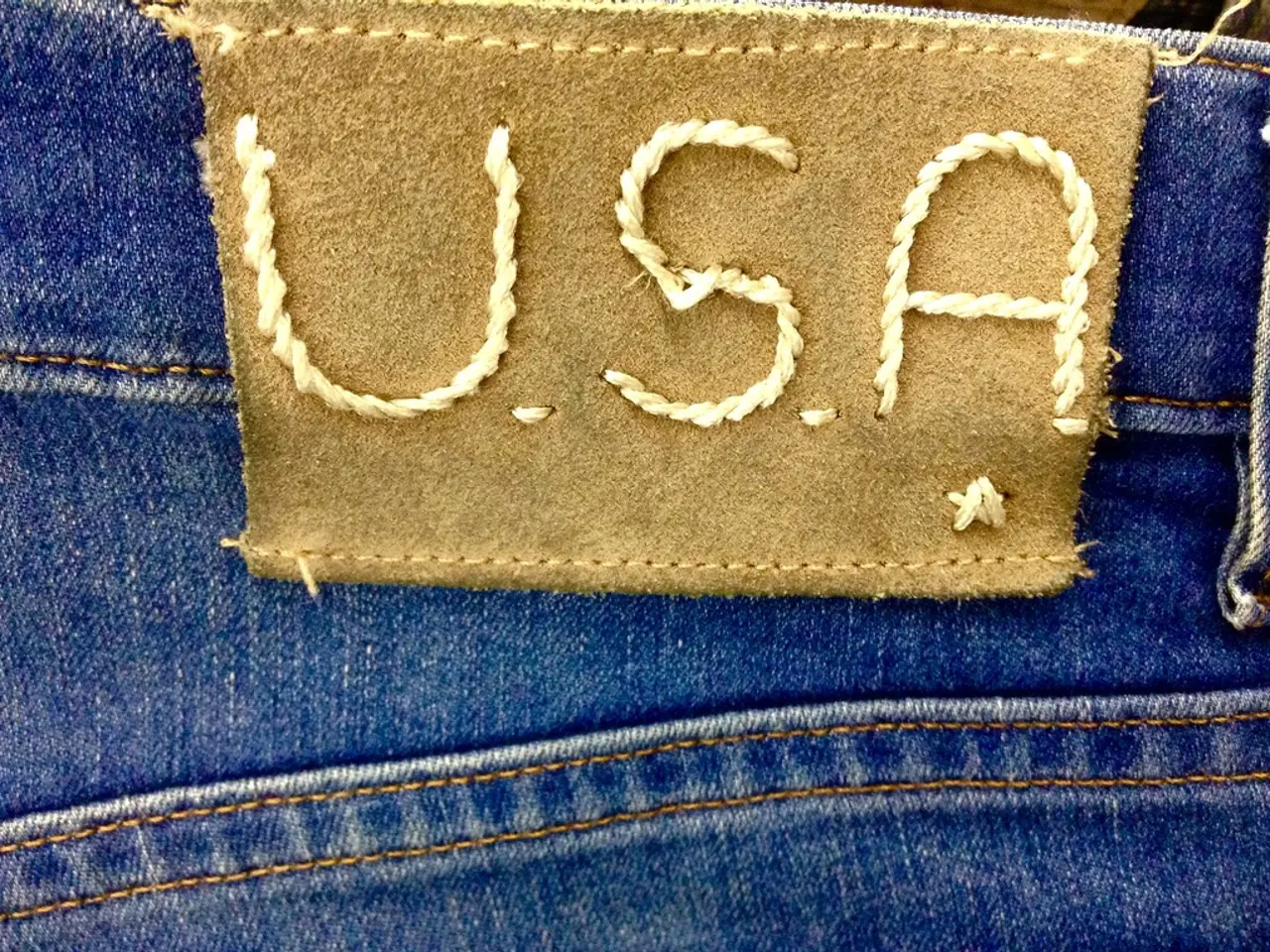Starting a Large-Sized Clothing Enterprise and Expanding Your Label's Reach
In the ever-evolving world of fashion, starting a plus size clothing line presents a unique opportunity for entrepreneurs to cater to an increasingly lucrative market. To ensure success, it's essential to understand the audience, choose the right manufacturing partner, and build a strong brand.
### Finding the Perfect Manufacturer
Finding a reputable plus size clothing manufacturer is crucial for maintaining quality, fit, and brand alignment. A strategic approach includes searching industry-specific directories, exploring wholesale marketplaces, and consulting stylist and editorial roundups.
Industry-specific directories like ItalianModa list Italian manufacturers specialising in high-quality, trendy, and curvy plus size clothing. These manufacturers often highlight their production processes, materials, and services, such as private label and white label options.
Wholesale marketplaces such as Shopify’s blog review suppliers like Bloom Wholesale, Tasha Apparel, and Kiyonna Clothing. These platforms provide details on size ranges, MOQs (minimum order quantities), shipping, and dropshipping capabilities—key factors for new businesses.
Consulting stylist and editorial roundups, like Business Insider's list of best plus-size clothing brands, offers insights into brands that are reputable, on-trend, and customer-approved. Note which brands also offer wholesale or manufacturing partnerships.
### Evaluating Manufacturers
When assessing potential manufacturers, consider factors like size range, quality and materials, private label options, ethical and sustainable practices, MOQs and pricing, shipping and logistics, and compliance with labor and environmental standards.
### Contacting and Vetting Manufacturers
Reach out directly to manufacturers via phone, email, or WhatsApp to inquire about samples, production capacity, lead times, and compliance with labor and environmental standards. Request samples to assess quality, fit, and finish before placing a large order. Check references or look for client testimonials, especially from other boutique or plus-size brands.
### Considering Geopolitical and Logistical Factors
When deciding between domestic and international suppliers, consider factors like shipping times, costs, and communication ease. Look for manufacturers with relevant certifications to ensure ethical and safe production practices.
### Leveraging Online Communities
Join fashion entrepreneur groups on LinkedIn, Facebook, or Reddit to ask for recommendations and share experiences with specific manufacturers.
### Example Manufacturers and Suppliers
- ItalianModa-listed companies specialise in high-end, Italian-made plus size fashion with private label services. - Kiyonna Clothing is a US-based wholesale supplier offering sizes 10–32, with a range from everyday to special occasion wear. - Bloom Wholesale is a US wholesale distributor with trendy plus size options, low MOQs, and dropshipping capabilities. - Free Label is a Canadian supplier offering sustainable, size-inclusive basics, ideal if ethics and sustainability are brand priorities.
By following these steps, entrepreneurs can find the right plus size clothing manufacturer to help bring their vision to life and tap into the growing plus-size women's clothing market, projected to reach over $101.93 billion by 2032.
- An entrepreneur's success in the plus size clothing market relies heavily on a strategic partnership with a reliable manufacturer.
- To find such a manufacturer, exploring industry-specific directories, wholesale marketplaces, and stylist and editorial roundups is essential.
- For instance, ItalianModa lists reputable Italian manufacturers specializing in high-quality, trendy, and curvy plus size clothing.
- Wholesale marketplaces like Shopify's blog provide access to suppliers such as Bloom Wholesale, Tasha Apparel, and Kiyonna Clothing, which offer details on size ranges, MOQs, shipping, and dropshipping capabilities.
- When evaluating manufacturers, it's important to consider ethical and sustainable practices, private label options, size range, quality, pricing, shipping logistics, and compliance with labor and environmental standards.
- Direct communication with manufacturers, including requests for samples and checking references, is vital to ensure a good fit for the brand's vision and values.
- Leveraging online communities, such as fashion entrepreneur groups on LinkedIn, Facebook, or Reddit, can offer valuable recommendations and shared experiences with specific manufacturers.
- Once a manufacturer is chosen, entrepreneurs can focus on building a strong brand, ensuring customer satisfaction, and pursuing personal growth and learning opportunities in fashion-and-beauty, business, careers, education-and-self-development, and lifestyle, all while catering to the growing plus-size women's clothing market.




